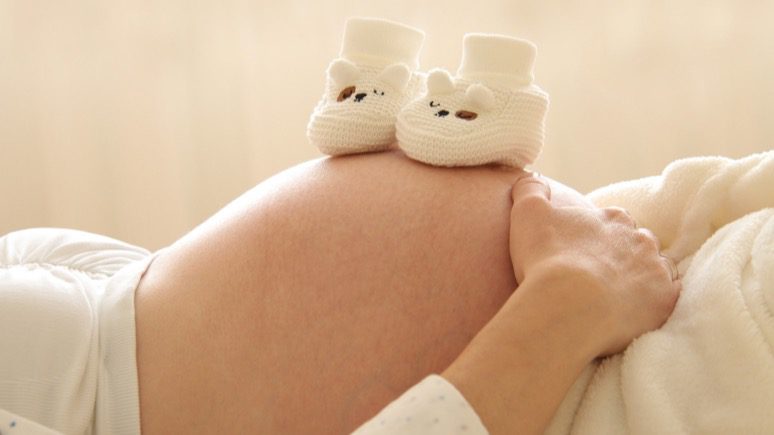A woman’s fertility relates to her capability of conceiving a biological child. The partners might question their fertility if they have been trying to conceive with frequent, unprotected intercourses minimum of one year – or at least six months if they are older than 35 – without success. Fertility in women can be improved.
How to increase fertility in women
- Eat food rich in antioxidants. Such antioxidants as zinc and folate may contribute to fertility improvement in both males and females. In your body, antioxidants deactivate free radicals damaging both egg and sperm cells. Vegetables, fruits, grains, and nuts contain various beneficial antioxidants, including vitamin E and C, lutein, and beta carotene. Whether antioxidants can boost fertility in women is still an open question, but evidence suggests they may.
- Avoid trans fats in your diet. Although the consumption of healthy fats daily can enhance fertility and overall health, eating trans fats increases the risk of ovulatory infertility associated with an adverse effect of trans fats on insulin sensitivity. Trans fats are typically found in hydrogenated vegetable oils, fried food, margarine, baked goods, and processed food.
- Consume more fiber. Food rich in fiber helps your body eliminate excess hormones and maintain blood sugar balanced. Some types of fiber can assist in removing excess estrogen in the intestines by binding to this hormone. In this way, the excess estrogen is removed from the body as a waste product. There is a strong association between soluble fibers from fruit and lower estrogen concentration. Whole grain food, vegetables, fruits, and beans are examples of food rich in fiber.
- Maintain healthy body weight. Ovulation can be inhibited by excessive weight or underweight.
- Chose dairy high in fat. Consuming low-fat dairy foods may elevate the risk of infertility in women, whereas consuming high-fat dairy foods may reduce it. Replacing one low-fat dairy serving per day with one high-fat dairy serving, including full-fat yogurt or a glass of whole milk, will benefit your fertility.
- Take multivitamins. The risk of ovulatory infertility decreases if the woman takes multivitamins. Approximately 20 percent of infertility cases can be avoided if the woman takes three or more multivitamins per week. Vitamins contain micronutrients essential for fertility. A multivitamin containing folate may be particularly beneficial for women trying to get pregnant.
- Maintain healthy iron levels. You can lower your risk of ovulatory infertility by consuming iron supplements and non-heme iron coming from plant-based food. Studies have shown that heme iron coming from animal sources has no impact on fertility in women and that non-heme iron benefits fertility in women with iron deficiency. Although more studies are needed to confirm whether iron supplements should be recommended to all women, you need to ensure that your iron levels are healthy.
- Taking natural supplements. A number of natural supplements can boost fertility in women, especially in animal studies. However, you need to talk with your physician before taking any supplements. Examples of natural supplements for female fertility include:
- Bee pollen. Bee pollen is associated with the improvement of female fertility, immunity, and overall nutrition. In addition, animal studies have shown that bee pollen consumption can improve sperm quality and male fertility.
- Bee propolis. According to a study conducted on women with endometriosis, taking bee propolis twice a day boosted women’s chances of getting pregnant by 40 percent after nine months. However, more studies are needed to confirm the effect of bee propolis.
- Peptide supplements. Particular supplements containing peptide bioregulators may help boost fertility in women – an example Here.
- Royal jelly. Bees also produce royal jelly, which contains elements beneficial for female fertility, including amino acids, sugars, lipids, vitamins, iron, fatty acids, and calcium.
- Exercise regularly. It has been shown that moderate exercise positively affects female fertility, especially for women with obesity. However, training intensity needs to be moderate because several studies have linked excessive high intensity exercise to decreased fertility in women. In addition, excessive exercise may negatively affect your reproductive system and change your energy balance.
What to avoid to boost fertility in women
- Limit alcohol consumption
- Eat fewer refined carbs
- Quit smoking
- Cut caffeine consumption
- Avoid toxins exposure
- Avoid overexercising
- Prevent sexually transmitted infections
- If possible, avoid night shifts
In addition, you can try the Khavinson peptide supplement called Zhenoluten to boost your fertility. It is cytomax containing peptide bioregulators isolated from the ovaries of young animals. Zhenoluten contributes to the improvement of women’s reproductive health. This supplement normalizes hormonal status, restores the cyclic activity of ovaries and egg maturation, and improves menstrual functions. Moreover, Zhenoluten normalizes estrogen and progesterone production, reducing the manifestation of hormonal disbalance.
Click here to read more about Zhenoluten.
















Leave a Reply
You must be logged in to post a comment.